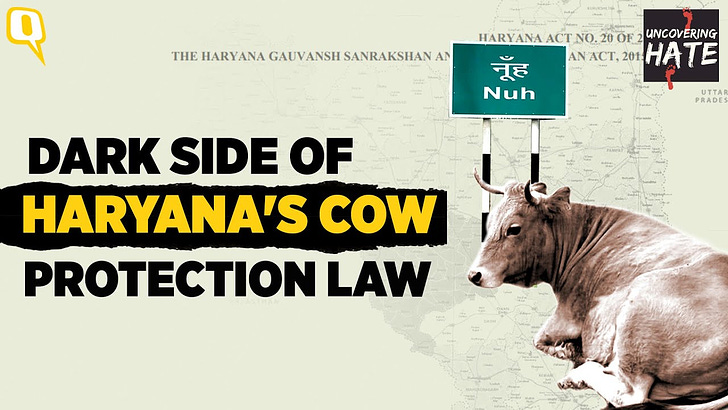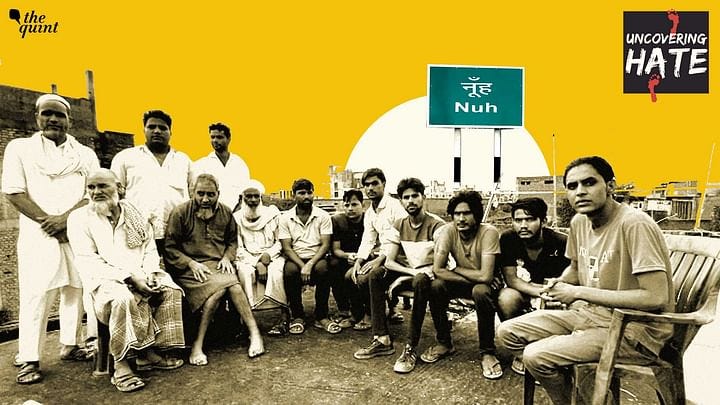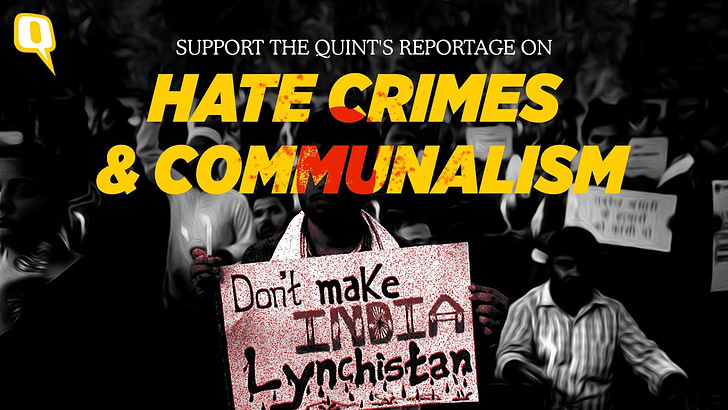The Question is... How Will Cow Vigilantism Stop Being a Problem With a Law Enabling it?
Your support is essential in bringing such stories to light.
Dear Reader,
A few weeks ago, I was reading a book by sociologist Tanweer Fazal in which he makes a pertinent point about cow vigilantism in Haryana. In the poll-bound state, it's the Cow Protection Law (among other laws) that is actually enabling the vigilantes.
How? By shifting the burden of proof on the accused.
As is true with any law, the Cow Protection Law seemed straightforward, but as a reporter who's been covering communally motivated hate crimes for a few years now, I knew there was a possible pattern in the state that demanded a closer look.
In search of answers, The Quint's video journalist Shiv Kumar Maurya and I went to Nuh, the most backward district in Haryana. Almost every lawyer and local resident that we spoke to said that the Cow Protection Law is indeed being misused to harass... Muslims. And there's data which makes the picture even more grim. Around 95% of cases under the said law end in acquittals, but not before taking a huge toll on the accused and their families, most of whom are poor.
The question is... when the law itself is promoting hate crime, how will the accused be safeguarded?
One of the lawyers, Somdutt Sharma, was a story by himself. He has been associated with the RSS for decades but he was the most vociferous in claiming that the Cow Protection Law had become "a tool to harass".
The toughest part for us, though, was meeting the families of Waris and Rakbar Khan in the remote villages of Hussainpur and Kolegaon, respectively. Both men were killed by ‘gau rakshaks’. I felt torn between wanting to document the grief and struggles of their families and being overcome with guilt for making them relive the trauma.
"A cow's life has more value than that of a human being," Rakbar's wife told us.
There was nothing more to be said. To witness their resilience and courage was deeply humbling.
In some ways, this resilience can be seen in varying degrees among the locals of Mewat, despite the violence they faced last year, which killed seven. People belonging to different communities have put the violence behind them — and are choosing harmony.
Nuh: Despite Facing Violence, Meo Muslims Say 'Bhaichara' Comes First
The question is... if the locals of Nuh are willing to move on, can it happen given laws like the Cow Protection Law are part of the problem?
Will this change if there is a change in government in Haryana — or will the impunity of cow vigilantes continue?
Even as we ask these questions, we are grateful to the people of Nuh for making these ground reports possible — people who gave us shelter in the rain, showed us the way when we got lost, offered us tea and food, and took time out from their work to help us.
YOU can also help us, too. BECOME A MEMBER* — and support our coverage on 'Uncovering Hate Crime'. Travelling to the remotest parts of India comes with a huge cost for a small, independent media house like ours. And, as I have just mentioned, it ain't easy either.
That’s all for now. Hopefully, I’ll drop in your inbox again with another story soon. Meanwhile, you can follow my work on X and Instagram.
Thank you,
ALIZA NOOR
Principal Correspondent
Also Read:
*Already a member of The Quint? What a star! Your support empowers us in our mission to question everything.
Want us to cover a story? Write to us at editor@thequint.com or reply to this email.






